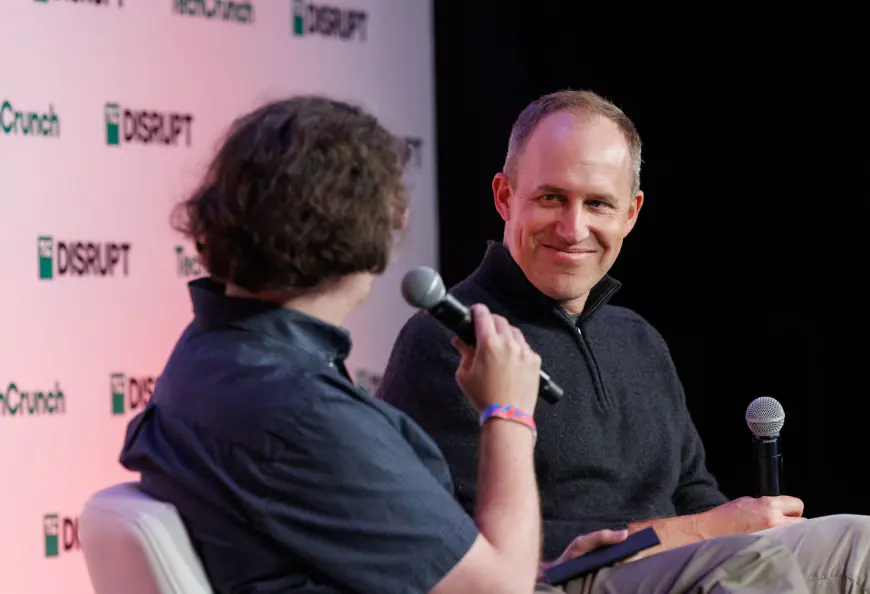OpenAI’s New Board Chair Bret Taylor Shares the Story of Saving Sam Altman’s Job
The situation was "more nuanced" than Sam Altman asking help to get his job back, Bret Taylor recalled.

 OpenAI chairman Bret Taylor" width="970" height="662" data-caption='OpenAI chairman Bret Taylor has held many notable titles in tech. Katelyn Tucker/ Slava Blazer Photography'>
OpenAI chairman Bret Taylor" width="970" height="662" data-caption='OpenAI chairman Bret Taylor has held many notable titles in tech. Katelyn Tucker/ Slava Blazer Photography'>
Bret Taylor, the new board chairman of OpenAI, said he wasn’t planning on engaging in much board work when the high-flying A.I. company was on the brink of collapse and called him for help this time last year. “That weekend after Sam [Altman] had been fired by the board, I ended up getting calls from both the board and Sam expressing that I could help potentially mediate the situation,” Taylor said during an onstage interview at the TechCrunch Disrupt conference in San Francisco yesterday (Oct. 29).
Taylor joined OpenAI in November of 2023 as the chairman of a new board after a dramatic leadership shakeup that fired and rehired its CEO Sam Altman within days. When asked if Altman called him up asking him to get his job back, Taylor said the situation was “more nuanced” than that. “But I think they mutually came to the conclusion that I could help them both navigate the complex situation the organization was in at that point,” he said.
Taylor, 44, has held many notable titles in tech: he was the former chief technology officer of Facebook (now Meta (META) Platforms), the former co-CEO of Salesforce and, for a brief while, the board chairman of Twitter (before Elon Musk bought it and renamed it “X”). In addition to serving as OpenAI’s chairman, Taylor now also runs an A.I. startup called Sierra, which helps companies build conversational A.I. to better serve their customers.
Taylor said he started the new company out of his genuine excitement for the current wave of A.I., which he said was kick started by OpenAI’s ChatGPT. “I wouldn’t be doing what I’m doing if not for OpenAI…ChatGPT was the moment that changed the consciousness of the world around A.I.,” he said. “I realized that this organization which had such a meaningful part of my story was potentially about to disintegrate, and that I was in an oddly unique position to be able to help.”
Advice to startup founders on surviving after a major acquisition
Taylor, who describes himself as an entrepreneur by nature, got the top jobs at those tech giants not by climbing the corporate ladder but through selling his own companies to them. In 2009, he sold a social networking startup called FriendFeed to Facebook for $15 million and subsequently joined the company as CTO. He left in 2012 to start a productivity software company called Quip. In 2016, Salesforce acquired Quip for a whopping $750 million and named Taylor Salesforce’s chief product office the following year. He was promoted to co-CEO, along with founder Marc Benioff, in 2021.
It’s rare for a startup founder to thrive under a larger corporate umbrella following an acquisition. (Think Instagram’s Kevin Systrom and Mike Krieger, Slack’s Stewart Butterfield, YouTube’s Jawed Karim, Steve Chen and Chad Hurley, just to name a few.) Taylor said he credited his success to a piece of advice he received from Sheryl Sandberg, Facebook’s former chief operating officer.
“I had just become chief technology officer of Facebook and was managing a team larger than any team I had managed before. She gave me some really critical feedback that basically boiled down to, ‘You should expect more of your leaders and stop trying to do all the work yourself,'” he said.
The bottom line is, “entrepreneurs go through different stages of their company. When you start, you need to build something people want. But at some point, you really have to build a company as a CEO,” Taylor said. “If you are too wedded to a perception of who you are, you won’t actually make that transition.”
What's Your Reaction?









































































































